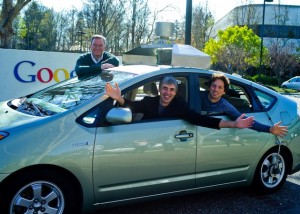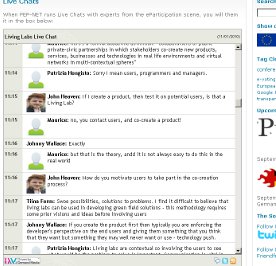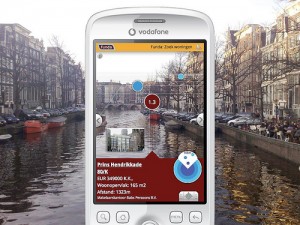Archive for the ‘Trends’ Category
 |
3. February 2011 – 00:06 by Francesco Molinari
|
On January 31st, a group of academic researchers, city managers and consultancy professionals was gathered into a single-day expert advisory meeting led by IPTS, the European Commission’s Institute on Prospective Technological Studies, and Eurocities, the network of major European cities, to discuss and evaluate the preliminary results of an exploratory study carried out jointly by the two organisations over the past couple of years.
The study, called EXPGOV, has by now collected a huge amount of evidence on the most likely areas of impact of ICT on governance, based on a survey of about 60 out of 446 EU cities with 100,000 inhabitants or more from all 27 Member States (plus Croatia and Switzerland), and later on the preparation and analysis of four detailed case studies (Barcelona, Berlin, Manchester, and Tallin), the results of which were presented for the first time during the meeting.
In my opinion, the big merit of this effort is to have raised the issue of assessing ICT impact on middle- and large- sized city governance on a systematic basis in Europe – probably for the first time ever, as strange as this may appear. In that respect, it is a preliminary answer given to the key questions: “Where do we stand? Where should we go?” and also the photograph of work in progress, showing a fair deal of convergence between old and new Member States, south and north of Europe, relatively larger and smaller communities, both in terms of problems tackled with and solutions offered to approach them. Particularly the survey questionnaire (which was anonymously filled out by several kinds of stakeholder, including city managers or their delegates) provided evidence of a number of “flagship projects” that must have been making the difference in a number of European city contexts.
Read the rest of this entry »
Posted in ICT, News, Trends | No Comments »
 |
21. January 2011 – 10:15 by Bengt Feil (TuTech Innovation GmbH)
|
 Yesterday Eric Schmidt stepped down as CEO of Google and he will act as the executive chair starting April 2010. The founder Larry Page will take over the day-to-day operations of the company (Sergey Brin will mainly focus on product development from now on). The impacts of these changes are discussed all over the web and I will not try to do that here.
Yesterday Eric Schmidt stepped down as CEO of Google and he will act as the executive chair starting April 2010. The founder Larry Page will take over the day-to-day operations of the company (Sergey Brin will mainly focus on product development from now on). The impacts of these changes are discussed all over the web and I will not try to do that here.
But there is another interesting angle on this whole issue. In his role as executive chair Mr Schmidt will be working on Government relations more heavily than before which might have a major impact on how the net is regulated and how Google interacts with government – which in turn could influence the field of eParticipation.
Taking this into account it makes sense to take a look at what Mr Schmidt said about his plans in terms of government relations. In the Q4 2010 Earnings Call he stated that he thinks that the problems Google had with governments in last few years (accidental collection of wifi data or the Streetview debate in Germany) might stem from the fact that “people don´t really understand what we really do and what we don´t do”. He follows up with the statement that the core strategy will be do communicate more intensely with regulators and government – “We are trying to be as transparent and collaborative as possible”. He also makes clear that Google thinks that regulators have an important job to do and that “they are there for a reason and we respect that”.
While Mr Schmidt makes clear that there is a need for more communication between government and the company he also says that he thinks that what Google does is “very pro competitive” – answering the complains that Google might behave anti-competitive in some areas like for example favouring their own products in search results.
In summary it looks like if Mr Schmidt will be more active in working with governments in the next years and I would argue that it is good for both the company and governments. Without a doubt he is a very knowledgeable and straight discussion partner for governments and from a citizen’s point of view his involvement might help to both improve internet regulations and speed up the process towards them.
Picture from Techcrunch.com
Posted in News, Trends | No Comments »
 |
19. January 2011 – 11:44 by John Heaven (TuTech Innovation GmbH)
|
A report to the European Commission recently called upon Member States to step up their efforts to digitise catalogues of cultural works including books and paintings. This presents some challenges which I think help us to reflect on issues surrounding open data.
The act of digitising works costs money and doing it properly – ensuring that prints are of a high quality and high enough resolution to make them useful – can be expensive. As with any expenditure, public organisations have to demonstrate that their investment is justified by a public need or that they can recoup the money by selling what they produce. This is exactly what Birmingham Museum and Art Gallery has done by selling on-demand prints of their works online. The argument that these works are public property and should be available free of charge may hold in principle, but if all works are made freely available then the funding must come from elsewhere or they simply won’t be digitised in the first place.
I think the same applies to open data: the data may be on paper, or uncollected. The act of collating this data simply for the purpose of making it public costs money and this investment will need to be justified against many other competing demands on the public purse. Where data is already in digital form and it is simply a case of putting a spreadsheet on the internet, the argument is more straightforward; but when it costs money to collect it and make it available it is more complicated, especially if the data is already a source of income. Why would you want to give companies that happily pay handsome sums for, say, mapping data this information free of charge? Why spend lots of money collating data that perhaps nobody will use?
The Localism Bill (see previous article) attempts to solve this by releasing data according to the wishes of local residents. I think we should be exploring other ways of ensuring that data remains a source of income whilst being available for people like community activists and volunteers who want to use data to improve their surroundings.
Public authorities should think about making data available under a Creative Commons licence. This could allow them to preserve their income streams by prohibiting commercial use, whilst allowing people to use the data for personal and voluntary means. It may even encourage more people to buy their datasets by giving them the option to “try before they buy”. Further, there may be some instances where a private company can work with a public authority to collect data for its own purposes and at its own expense. By obliging the company that collects the information to make it available for non-profit public use, this may be a way of covering the costs of data collection whilst retaining the principle of openness.
Posted in open data, Trends | 2 Comments »
 |
17. December 2010 – 17:25 by John Heaven (TuTech Innovation GmbH)
|
You’ve joined us for live chats on the blog, taken part in our online discourses, chatted to us at conferences, read PEP-NET members’ articles, and downloaded the free PEP-NET Issue of JEDEM. Eighty-six of you even came to Hamburg to join us for the PEP-NET Summit. Before the year is out, we would like to ask you take part in one final activity: our survey “Looking Forward, Looking Back: eParticipation Trends in 2010 and 2011.”
So what were the main trends in 2010? What areas of eParticipation made particular progress, and what events defined the eParticipation calendar? And while you are thinking about trends, what do you think will be up and coming in 2011? Nobody can predict the future, but it will be interesting to find out how 2010 was for friends of PEP-NET, and what they expect in 2011.
When I’m back in the New Year, I’ll put together a summary of results. I think it will make for interesting reading – but only if you take part, that is!
In the meantime, from Edinburgh to Athens, Madrid to Minsk: wherever you are, Merry Christmas and a Happy New Year!
Posted in members, Trends, Visions | No Comments »
 |
15. December 2010 – 10:25 by John Heaven (TuTech Innovation GmbH)
|
Far from winding down for Christmas, this week sees a lot of European eParticipation-related activity in Brussels and Strasbourg. The launch of the eGovernment Action Plan, the presentation of the Citadel Statement and the expected adoption of regulations on the European Citizens’ Initiative by the European Parliament in Strasbourg mean that this is a busy week for European eParticipation enthusiasts.
At the “Lift Off Towards Open Government” in Brussels, Digital Agenda Commissioner and Vice President of the European Commission Neelie Kroes will launch the eGovernment Action Plan 2015. Following the launch, the conference will hear from eParticipation and eGovernment actors from the Commission and across Europe.
At the pre-conference yesterday, Geert Bourgeois (Vice Minister-President of the Flemish Government and Flemish Minister for Administrative Affairs, Local and Provincial Government) launched the Citadel Statement, a pan-European declaration that aims to identify what local government really needs to deliver on the vision set forth in last year’s Malmo Ministerial Declaration on e-government. The Citadel Statement, the result of an open discussion in which anyone could makes suggestions and vote on other people’s suggestions, is broken down into the following headings:
- Common Architecture, Shared Services and Standards
- Open Data, Transparency and Personal Rights
- Citizen Participation and Involvement
- Privacy and Identification of Individuals
- Rural inclusion
Click here for a PDF version of the full press release.
Finally, the European Parliament will vote on regulations that specify in more detail arrangements regarding the European Citizens’ Initiative. The Lisbon Treaty made provision for one million citizens to force the Commission to consider initiating legislation in any area within its remit. A recent petition online called on the Parliament to adopt “effective regulations for the European Citizens’ Initiative”; see my previous post.
Geert Bourgeois, Vice-Minister-President of the Flemish Government and Flemish Minister for Administrative Affairs, Local and Provincial Government
Posted in Events, News, Trends | No Comments »
 |
18. November 2010 – 10:32 by John Heaven (TuTech Innovation GmbH)
|

Manuel Kripp, MD of E-Voting.cc
Manuel Kripp, Managing Director of PEP-NET member E-Voting.cc, recently visited the US during the mid-term elections, so I was very curious to find out what he had got up to. We spoke about electronic voting machines, the role of social media in the US elections, and the need for change management when introducing E-Voting technology.
To find out what E-Voting.cc does, see their website or my previous interview with Manuel’s predecessor Robert Krimmer.
John Heaven: Hi Manuel. I hear you’ve been travelling recently. What were you up to?
Manuel Kripp: I was invited to participate in the 2010 U.S. election program organised by the International Foundation for Electoral Systems (IFES), and by the the Electoral Assistance Commission (EAC) to observe the election on Tuesday 2nd November.
The conference was well attended by experts from around the world, including Thomas Wilkie (Chief Executive, IFAS), Doug Chapin (Pew Centre on the States), and Bob Carey (Federal Voting Assistance Program). The Jo C. Baxter prize was presented to Dr Kwadwo Afari-Gyan, Chairman of Ghana’s Electoral Commission, for invaluable contributions to democracy in Ghana.
The focus of my visit was on seeing how elections are conducted in other countries from around the world, and comparing the US electoral system with how things are done in Europe.
Read the rest of this entry »
Posted in Interview, members, News, Trends, Visions | No Comments »
 |
16. November 2010 – 17:49 by Institute for Electronic Participation
|
 This year largest eDemocracy conference in South East Europe took place during 12-14th September, 2010 in Ohrid, Macedonia.
This year largest eDemocracy conference in South East Europe took place during 12-14th September, 2010 in Ohrid, Macedonia.
The e-Democracy Conference 2010 welcomed 30 delegations from 15 countries. 100 participants from Parliaments, Governments and Official Journals, as well as representatives from international organizations, business sector and academia were engaged in fruitful and interesting discussions about the role that ICT can play into improving the democracy and transparency of the public institutions. More information about the conference is available at https://www.edemocracy.mk.
The e-Democracy Conference 2010 topics included:
- Future and emerging technologies for e-Democracy
- Compliance and standards (EU perspective)
- How to support “Green IT” initiative in the policy development
- ICT in legislative knowledge management
- How can information technology transform the way parliaments and governments work
- Interoperability in the legislative process
- Parliaments and Democracy in the Twenty-first century
- State of ICT development in Parliaments
- ICT in parliaments current practices
- e-Parliaments-The Use of ICT to Improve Parliamentary Processes
The participants at the e-Democracy Conference 2010 agreed that the progress that Macedonia has made in using ICT for improving democracy is an example that all the countries in the region should follow.
Read the rest of this entry »
Posted in Events, good practice, inclusion, members, News, Tools, Trends, Visions | No Comments »
 |
16. November 2010 – 12:00 by John Heaven (TuTech Innovation GmbH)
|

Birmingham's Virtual Library. Click for larger image
It’s easy to reject Second Life as an eParticipation platform, but Birmingham City Council is just about to launch a virtual model of the planned £193m Library of Birmingham. I spoke to representatives of the Council and the company that they are working with to find out what they are doing, and how they are making the virtual library accessible to a wide audience. What I found was fascinating, and I really think Second Life deserves a second look.
Second Life is a virtual world that allows users to assume a second identity and explore a digital three-dimensional world. It’s not difficult to see how this could be used to enable people to “go” to places they wouldn’t otherwise visit, network with people from far away, or take part in virtual events. That’s the theory; but my big issue with Second Life is that it is a very niche audience and it takes quite a lot of effort to download the software and work out how to use it. Once you’re in there, it’s great to be able to look at these virtual buildings and access information; but I can view videos, read text, and chat to friends much more easily using the internet outside Second Life. So why would a city council be interested in Second Life? Read the rest of this entry »
Posted in good practice, Interview, News, Projects, Tools, Trends, Visions | 2 Comments »
 |
1. November 2010 – 15:46 by John Heaven (TuTech Innovation GmbH)
|

Living Labs Live Chat
Today saw another PEP-NET Live Chat, this time on the topic “Living Labs”. Experts from across Europe, all of whom are partners in the PARTERRE project, discussed their experiences. (For details, see my previous post.)
We aimed to give people who aren’t so familiar with the Living Labs approach a deeper understanding of what the concept is. After all, you often hear the term when conversation turns to European projects.
What is a “Living Lab”?
It’s a way of involving users in the design process for new products and services — and when I asked whether the concept is user-centric, the answer was a resounding “yes”. It is not simply a test-bed, i.e. taking a finished product and testing it on a group of users; it’s much more about empowering a community of users to solve a problem that affects them. The theory is that because they are the people who will be using the product or service, they know best what they need. They will need help from developers to know what technology is capable of, but the Living Lab environment should allow users to retain as much control as possible. This is a reversal of what happens when people develop something that they think solves other people’s problems. (This isn’t just technology developers — I’m sure we have all done that in one way or another.) Even the term “user” was viewed with scepticism by some: the LL approach is all about creating a community that transcends the usual barriers between users and product developers.
How to set one up?
Read the rest of this entry »
Posted in Events, Projects, Trends | 5 Comments »
 |
8. October 2010 – 10:09 by Bengt Feil (TuTech Innovation GmbH)
|
 In January of 2010 I wrote an article about the possibilities of augmented reality in eParticipation. Three quarters of the year in augmented reality, as a method of layering information onto the real world, has developed further and looks like it is here to stay and therefore keeps being interesting for eParticipation. It however also is part of a greater challenge the eParticipation community faces.
In January of 2010 I wrote an article about the possibilities of augmented reality in eParticipation. Three quarters of the year in augmented reality, as a method of layering information onto the real world, has developed further and looks like it is here to stay and therefore keeps being interesting for eParticipation. It however also is part of a greater challenge the eParticipation community faces.
Several things hint at the coming of age of augmented reality:
- The platforms being able to use augmented reality apps have gotten more common with iOS and Android hardware having the necessary sensors and cameras and being widely successful in the market place. However with the availability of more devices the differences among them are also getting bigger (for example a gyroscope is only available in the iPhone 4 right now). This video gives a good overview of the available platforms).
- Augmented reality seems to come into the mainstream slowly as the discussion around PlaneFinder shows. This app lets you point your phone at a plane in the sky and get information like position, height and speed, and has been deemed as being possibly dangerous to airplane security. Even though augmented reality is still gimmicky in many cases new uses bubble up every day and the technology might find a strong place in mobile app use over time.
- Another hint of the growing interest in augmented reality is the time spent by developers building the apps. From September 2009 to June 2010 the number of AR apps in the Appstore rose from 83 to 480. This shows that augmented reality is still a niche but on the rise.
So what to make out of the fact that this way of displaying information on mobile devices is here to stay? For eParticipation this challenge has to be seen in the greater context of the transformation from almost all web-usage being in a standard web-browser on a computer to a multi-device (phone, tablet, TV) profile.
The eParticipation user of today might jump for one device and mode of usage (e.g. consuming information to adding content) to the other quickly and modern eParticipation platforms should be able to handle this challenge. From this angle augmented reality is just one more brick in the wall (consisting of many bricks).
I will pick up this topic in another article and try to discuss how the problem of getting eParticipation working in so many different settings could by addressed from a technical and procedural point of view.
Posted in Trends | No Comments »












